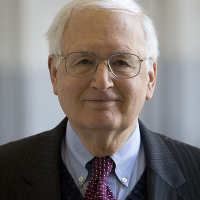The Heart of the Matter: Reassessing the Foundations of U.S.-China Relations
President Obama and General Secretary Xi achieved incremental progress in several issue areas at their recent summit, but did not address the most important question in U.S.-China relations, at least during their public sessions: Is there a sustainable foundation for the U.S.-China relationship and what strategies and dispositions will secure both sides’ interests, and the peace, over the next two decades?
A range of experts and policymakers have asked this question in a variety of ways: Can we still afford to emphasize the cooperative side of the relationship over the competitive? Are there interests or institutions that militate against the emergence of adversarial relations? Which ideas about the relationship are dangerous, or just plain wrong? Can the United States articulate a true China strategy, or are we stuck with crossing rivers by feeling for stones?
We are honored that four leading China watchers have offered to share their thoughts on the new strategic rationale for U.S.-China relations. Below are key takeaways from their presentations and discussion. Full text of their remarks can be downloaded below.
Ambassador J. Stapleton Roy
The current foundation of U.S.-China relations: A consciousness that China has become a great power and is continuing to develop its economic and military strength.
The United States is precariously balanced between two alternative visions of China:
- Seeing China as the principal burgeoning threat to our position in East Asia and the World.
- Seeing China as a country with whom we can cooperate in creating a world order, despite the existence of strong elements of rivalry in the relationship.
U.S. policy goals with respect to China are two-fold:
- Deter threatening behavior by a more assertive China.
- Expand cooperation with China in order to increase incentives for China to deal with other countries responsibly within a rules-based system based on international law.
Key Challenges:
- How to limit costly and dangerous U.S.-PRC strategic rivalry, especially in the military sphere.
- Managing this challenge in a way that advances U.S. interests and maintains the confidence of our friends and allies in the region.
- Is the United States prepared to commit the resources/political funds necessary to compete with a China whose GDP growth is outpacing that of the United States? The immediate indicators are not encouraging.
Bonnie Glaser
There is no single foundation for the U.S.-China relationship. As China's interests become ever more global, the potential for convergence of U.S. and Chinese interests is growing, creating the basis for a broader foundation of the relationship: climate change, peacekeeping, nuclear security, etc.
Increased friction between the U.S. and China in some areas is quite likely in the coming years; balancing these areas with increased cooperation where our interests overlap is one important strategy to keep the relationship on an even keel, to prove its significance to critics; and to build habits of cooperation.
Guidelines that should be followed to secure both sides' interests and peace in the coming decades:
- Mutual recognition of the importance of the U.S.-China relationship to both countries’ interests. More importantly, leaders of the United States and China must prioritize the relationship.
- There must be acceptance that at times U.S. and Chinese interests will diverge and even conflict. Those instances must be very carefully managed.
- Both sides should refrain from actions or statements that directly harm the other side’s interests and increase mistrust.
- Both sides should seek to agree, where possible, and along with other members of the international community, on norms, laws, and regulations to guide behavior.
- Compromise and accommodation should be pursued where possible.
- Special attention should be paid to avoiding a zero-sum relationship in the Asia-Pacific region.
Speakers

Founding Director Emeritus, Kissinger Institute on China and the United States

Gaston Sigur Professor of Asian Studies, Political Science & International Affairs; Director, China Policy Program, George Washington University


Hosted By

Kissinger Institute on China and the United States
The Kissinger Institute works to ensure that China policy serves American long-term interests and is founded in understanding of historical and cultural factors in bilateral relations and in accurate assessment of the aspirations of China’s government and people. Read more
